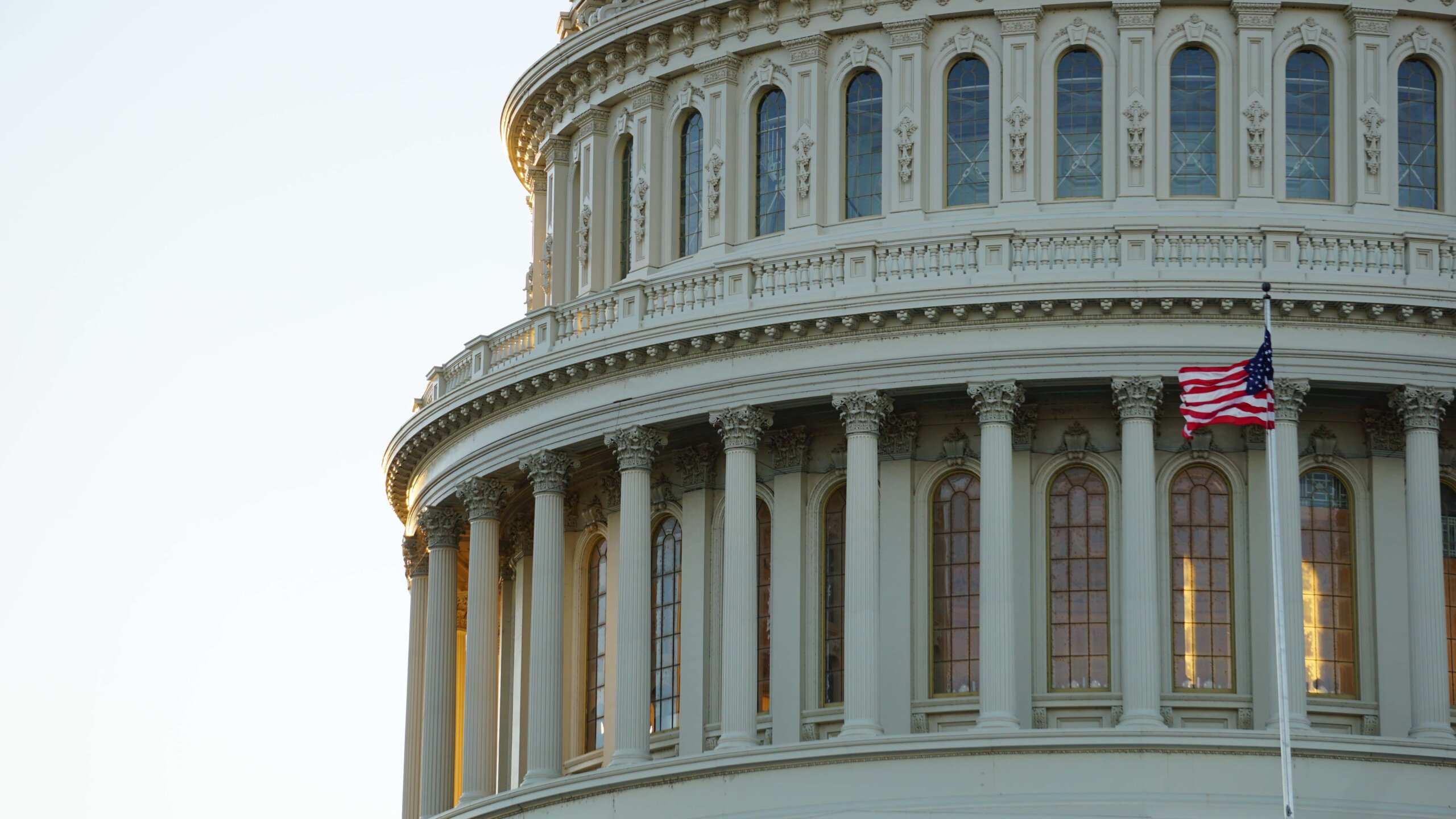Senate Passes Inflation Reduction Act

A major tax, climate change and healthcare bill passed the Senate in a rare Sunday session on August 7 on a strict party line. The Inflation Reduction Act of 2022 won approval on a 51-50 vote, with all Democrats voting yes, all Republicans voting no and Vice President Kamala Harris breaking the tie. The legislation includes several significant tax provisions to boost funding for climate change and reduction of prescription drug and other healthcare costs while lowering the deficit. The bill also contains enhanced tax incentives for clean energy.
The Congressional Budget Office (CBO) estimates the legislation will decrease the federal deficit by $102 billion over 10 years, from 2022 to 2031. The House plans to take up the bill promptly and send it to the President for signature.
Tax Increases
The bill includes the following significant tax increases.
Corporate Minimum Tax
- 15% minimum tax on adjusted financial statement income for corporations with three-year average annual financial statement income (AFSI) in excess of $1 billion. The threshold for foreign parented corporations is $100 million. Corporations under common control are aggregated.
- A corporation’s minimum tax would be amount by which tentative minimum tax exceeds the corporation’s regular tax for the year.
- Tentative minimum tax is determined by applying a 15% tax rate to the adjusted financial statement income of the corporation after taking into account the AMT foreign tax credit and financial statement net operating losses. General business credits also can offset the tax. A last-minute change allows a reduction in AFSI for depreciation, which benefits corporations in years in which tax depreciation is higher than book depreciation.
- A Republican amendment backed by Senator Kyrsten Sinema (D-AZ) exempts corporate subsidiaries of private equity firms from the minimum tax.
- Effective for taxable years beginning after December 31, 2022.
The Joint Committee on Taxation estimates that the minimum tax will apply to approximately 150 taxpayers annually. The Tax Foundation criticized the new minimum tax because “it will have disproportionate effects on specific industries…” The group goes on to explain, “As a share of its income, the real estate & rental/leasing industry faces the heaviest burden of the Inflation Reduction Act book minimum tax, facing a net tax hike of 11.5 percent of its pretax book income, followed by mining, which faces a 6.3 percent tax hike. In dollar terms, the industries that would account for the largest book minimum tax liabilities are manufacturing at $73.2 billion, followed by finance, insurance and management at $46.9 billion.”
2-Year Extension of Excess Loss Limitation for Passthroughs
- Extends for two years through 2027 the disallowance of excess business losses for non-corporate taxpayers which are calculated as net business deductions in excess of business income.
- The provision limits the amount of trade or business deductions that can offset nonbusiness income to an amount indexed each year for inflation. For 2022, the limitation amount is $270,000 for singles and $540,000 for joint returns.
- Unused losses are carried forward as excess business losses to be applied to limits in future years.
Excise Tax on Corporate Stock Repurchases
- 1% excise tax on publicly traded U.S. corporations for the value of stock that is repurchased during the tax year.
- Amount of repurchases subject to tax is reduced by the value of any new issuance to the public and stock issued to the employees.
- Subsidiary that performs buyback for its parent or a U.S. subsidiary of a foreign corporation that buys back its parent’s stock also is subject to excise tax.
- Applies to repurchases of stock after December 31, 2021, which makes it retroactive for all of 2022.
- The excise tax does not apply:
- if the total value of stock repurchased during tax year does not exceed $1 million.
- to tax-free reorganizations
- if repurchased stock or its value is contributed to an employer-sponsored retirement plan, employee stock ownership plan or similar plan.
- if repurchase is by dealer in securities in the ordinary course of business.
- to repurchases by a RIC or REIT.
- to the extent the repurchase is treated as a dividend.
Drug manufacturers excise tax
The legislation imposes a new excise tax on drug manufacturers, producers, and importers that do not enter into or comply with drug pricing agreements. The tax rate is between 65% and 95% of the price of the drug depending on the length of the noncompliance period.
Increased IRS Enforcement Funding
The bill increases funding for the IRS by over $79 billion through 2031 as follows:
- $45.6 billion for enforcement activities
- $25.3 billion for operations support
- $4.7 billion for systems modernization
- $3.1 billion for taxpayer services
- $15 million to report to Congress on the cost of developing and running a free direct eFile tax return system
The legislation specifically states that the increased funding is not intended to increase the burden on taxpayers with incomes below $400,000. Treasury Secretary Janet Yellen sent a letter to Congressional leaders before passage of the bill stating, “The legislation would either reduce or have no effect on the taxes due or paid by any family with income less than $400,000 and is fully consistent with the President’s pledge.”
IRS Commissioner Charles Rettig also has commented publicly that the new IRS funding will not be used to add “audit scrutiny on small businesses or middle-income Americans.”
Tax Provisions Left Out
Here are some key provisions that were dropped from the earlier version of the plan.
- No Carried Interest Changes. The bill originally extended the holding period for long-term capital gains treatment of carried interests from 3 to 5 years. Senator Sinema negotiated to get this provision removed before she would pledge to support the legislation.
- No Surcharge on High-wealth Individuals. The surcharges on high-wealth individuals with modified adjusted gross income (MAGI) above $10 million were not included in the bill.
Tax Incentives
Payroll Tax Offset of Research Credit for Small Businesses
Doubles the current $250,000 limitation allowing small businesses to apply the research credit against $500,000 in payroll taxes. Unused amounts of the credit may be carried forward.
Clean Energy Tax Incentives
The Inflation Reduction Act, which is billed as the most significant climate legislation ever advanced by Congress, includes a significant boost and extension of tax incentives for renewable and clear energy production. While FD’s ESG experts plan to publish more content around the corporate clean energy incentives involved, following is a highlight of the new individual incentives.
- Extends tax credits for purchase of electric vehicles ($7,500), including the purchase of used electric vehicles ($4,000) and commercial clean vehicles, though 2032. The bill includes price caps of $55,000 for cars and $80,000 for pickup trucks and SUVs. Income caps on the credit are included as well. Only buyers that have MAGI under $150K/year or $300k/year for joint filers can get the credit. (Top automakers had asked Congress to lift the cap on the number of vehicles qualified for the credit. The bill lifts the cap starting in 2023 but imposes domestic sourcing and assembly requirements.)
- Tax credits for manufacturing solar panels and wind turbines.
- Credits for buying energy efficient appliances, heat pumps, rooftop solar panels, electric heating & air conditioning systems and water heaters.
- Incentives to insulate homes and to improve electrical wiring.
The 755-page bill is complex and has numerous tax provisions, some beneficial and some that will result in a tax increase. Your Frazier & Deeter tax professionals are carefully analyzing the legislation and stand ready to advise you on what it means for you, your business and your investments.
Explore related insights
-
Medicare’s 2026 Physician Fee Schedule: What Changed and What to Do Next
Read more: Medicare’s 2026 Physician Fee Schedule: What Changed and What to Do Next
-
New USPS Postmarking Rules Could Affect Tax Deadlines This Season
Read more: New USPS Postmarking Rules Could Affect Tax Deadlines This Season






